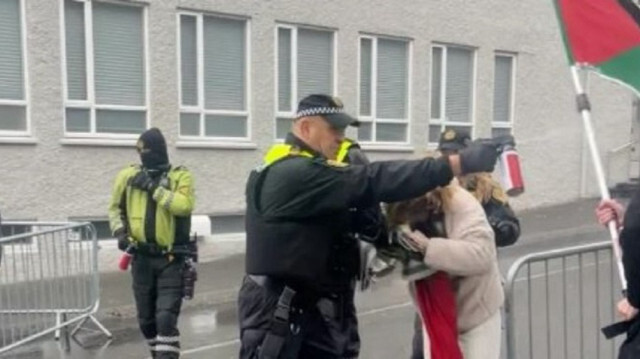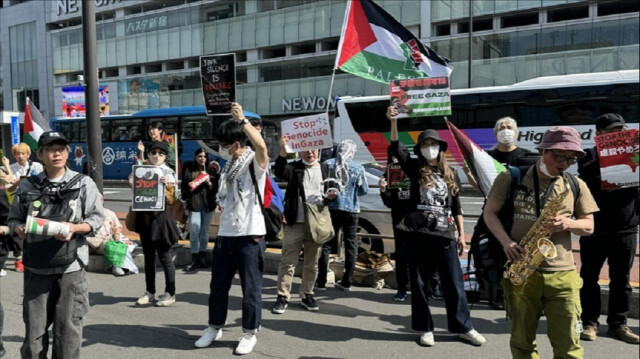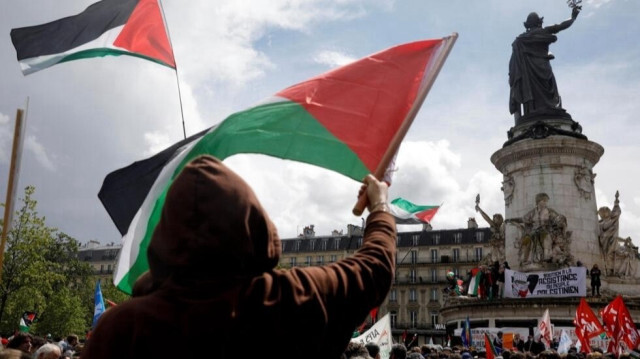Successive US presidents have invoked red lines to further America’s foreign policy goals.
GREG SIMONS

rafah
Over the years, in the sphere of international relations where the US has played an active role, one of the tools of its foreign policy rhetoric and practice, has been the invocation of red lines as a form of deterrence and an implied threat against its enemies. It’s a form of coercive diplomacy.
But what are red lines exactly, a frequently used term and concept that has been invoked in the 21st century international relations?
A definition that sets the tone of the word ‘red lines’ is as follows. Paris-based researcher Bruno Tertrais describes as “the manipulation of an adversary’s intent through (mostly public) statements for deterrence purposes, referring to the deliberate crossing of a certain threshold by an adversary, and relevant counteraction if this threshold is crossed.”
Of course, the value and effectiveness of red lines depends on whether the adversary deems the threat to be credible in terms of its enforcement and fallout, and whether the action they are being sanctioned for is worth it.
It is a cognitive act of weighing costs versus benefits of being sanctioned and weighing the value of the act against the costs imposed by the red lines (political, economic, etc.).
Red lines are a highly popular means of political symbolism. They convey to the targeted audiences the seriousness of the issue as well as give an appearance that something is being done in foreign policy terms.
Good red line Vs bad one
While the logic may appear to be sound, there’s a clear gap in the consistency of red lines. It basically comes down to ‘Us’ Vs ‘them’. Let me explain.
Washington has for decades preached to the world about the importance of a rules-based order, which helps stop transgression on the part of rogue actors.
But when it comes to red lines, the US has one rule for its enemies and another for its allies and clients.
It’s important to point out that the US is a relatively declining hegemonic power. It is seeking to create a system of informal rules and codes, as a substitute to the formal system of international law, to bend foreign relations in its favour.
A rules-based order is not about international law and quite often violates the core principles it stands for.
Within this geopolitical context, of a declining hegemon seeking to retain its ever-weakening grip on global power and influence, red lines are a tool in the US foreign policy arsenal that carries relatively low costs when they are invoked and involve lesser risks of a significant blowback.
The US is often heard invoking or attempting to impose red lines in international relations, sometimes those obeyed and other times ignored. There is also the aspect of a lack of consistency when it comes to enforcing red lines.
One of the most infamous historical examples of red lines and their enforcement was seen in the lead up to the 2003 US-led invasion of Iraq on the alleged basis that Baghdad was in possession of weapons of mass destruction.
Another example of red lines came with former US President Barack Obama’s warning to the Assad regime against use of chemical weapons in Syria.
These represent two ‘enemy’ states of the US, but with different outcomes. In the ongoing Israeli war on Gaza, after considerable procrastination and delay, US President Joe Biden’s administration spoke about red lines against Israeli military action, which rights see as a “plausible genocide”.
This red line rhetoric made the rounds even as the US continued to give Israel weapons and political and financial support.
Not all red lines are equal, in an Animal Farm kind of way, there are different rules for different countries and separate sets of circumstances to enforce them.
The Red Line bleeding Rafah
On March 10, President Biden in his usual state of cognitive confusion, stated that if Israel continued its war crimes, breaches of international law and the targeting of civilians in Gaza, then there would be consequences for the Jewish state.
He stated categorically that the Israeli invasion of Rafah, a central part of Gaza, would be a red line for the US.
Yet, at the same time he reiterated his absolute and unconditional support for Israel. Furthermore, he also stated that Israeli Prime Minister Benjamin Netanyahu was hurting Israel more than helping it with his approach to the war on Gaza.
This shows a clear contradiction in Biden’s word-salad of promise to uphold human decency and dignity on the one hand, and pledge absolute undying loyalty and support to the source of the human suffering on the other.
Biden’s invocation of the red line threat against Israel was not the first time that a US president has used this strategy to try and restrain Tel Aviv.
This begs the question, why issue the threat of red lines to Israel in the first place, and was there any sincerity when it comes to its enforcement?
To answer the first part of the question, the US felt obliged to engage in political symbolism on the global stage, considering its credibility, reputation and image were at stake as the Rules Based Order appears more like a hogwash to many countries in the Global South.
Those virtuous concepts – democracy, rule of law and respect for human rights – that the US preaches to the rest of the world are being ignored and violated on a massive scale and daily basis by Israel.
Israel by virtue of their brutal and disproportionate actions in Gaza is dragging the US down with it.
What’s more bizarre is the fact that Netanyahu dented President Biden’s credibility when he openly threatened to defy the red line in Rafah.
Biden looked weak and politically impotent, given his lack of response or resolve in actually enforcing the red line.
Needless to say, Israel was true to its word in ignoring Biden’s feeble and non-credible red line warning as it launched a major military operation on Rafah.
Israel has violated numerous rules of war and international law, not to mention violating even the most basic aspects of human decency in a heavily disproportionate and indiscriminate attack on Palestinian civilians.
Equally non-credible and lacking any moral or ethical substance was the White House’s dismissal of the assault as not constituting a breach of Biden’s red line.
There was no intention on the part of the US to enforce the red line. Washington was betting on a vague hope that Israel would decide on its own not to attack Rafah.
But given the utter lack of consequences for Israeli actions so far, it was a long shot.
Furthermore, Biden by not living up to his promise by continuing the supply of munitions and weapons, not only encourages the continuation of Israel’s ethnic cleansing of Palestinians, but is fully complicit in enabling it.
This is a presidential election year in the US and who gets to raise the most funds will play a crucial role in who gets elected.
The American Israel Public Affairs Committee (AIPAC) is a significant campaign contributor.
The only consistency in the red line narrative is the refusal and inability of the Biden administration to impose a red line on Israel, regardless of its actions.
SOURCE: TRT WORLD

Greg Simons is an independent scholar and researcher in Sweden.
@GregSimons12












